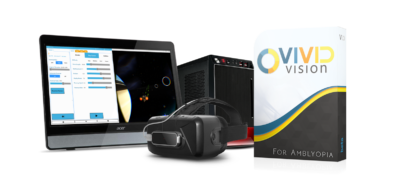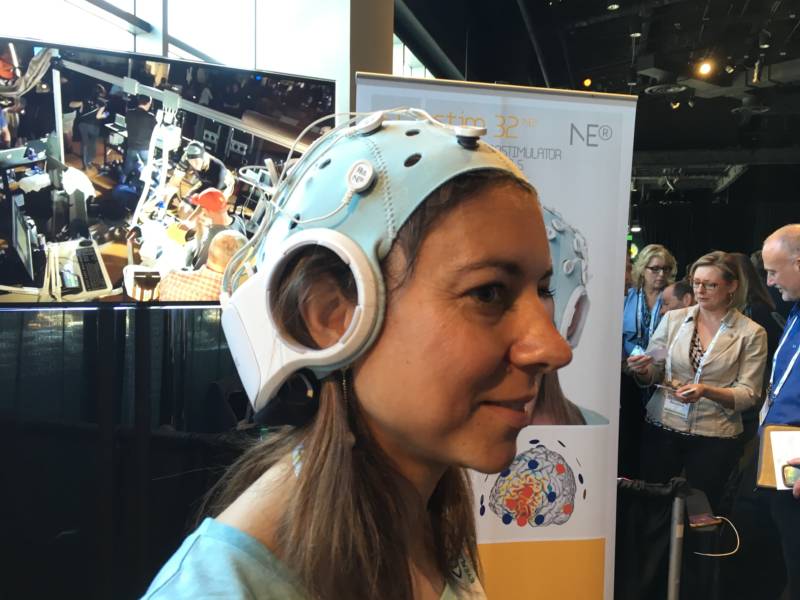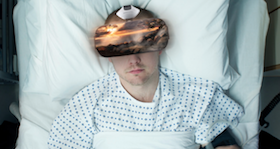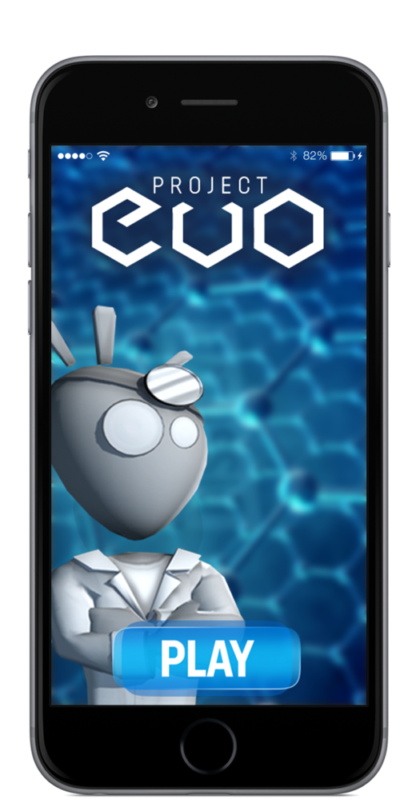Wandering through booths at a neurogaming conference in downtown San Francisco this week was a little like finding myself in a science fiction infomercial.
This was the the fourth annual Experiential Technology & NeuroGaming Conference and Expo, where I mingled with neuroscientists and inventors, eager to explain the technology behind their multiwired headsets or sleek brain gadgets.
Products fell into three primary categories:
- This Product Will Improve Your Life: In the life enhancement category, there were a number of devices that reps claimed would help me meditate, focus or train more efficiently. In one booth, attendees sat on black leather cushions, eyes closed and listening to guided meditations on black headsets. When listeners became distracted -- as determined by brain wave tracking -- the volume increased. In another booth, athletes tested the virtual reality devices that Stanford quarterbacks are using to help them prepare for games.
- For Entertainment Only: PlayStation sponsored the most popular entertainment booth, where a long line of people were buzzing about the upcoming fall release of the company's virtual reality games. When my turn came, the rep tightened my headset, and suddenly I was immersed in the deep of the ocean. When an animated shark opened its giant jaw and swam straight at me, I screamed.
- This Product is Therapeutic: A number of companies are targeting the medical field through an emerging market called digital therapeutics. Devices, apps and video games were on display targeting more serious mental conditions like attention deficit hyperactivity disorder or autism. Some are even seeking approval from the FDA.
Apps Headed to Hospitals and Clinics
Here’s a round-up of four companies who attended. They're offering products your doctor may suggest or even prescribe in the future.

Pear Therapeutics' primary product is called Reset. It’s an app that a doctor must prescribe to treat substance abuse or addiction. Patients can log cravings, triggers and drugs, or take learning modules to train themselves in new behaviors. Clinicians can log on and follow the patient’s progress. The app isn't on the market yet because it's been submitted to the FDA for approval. The company has spent about $40 million on five clinical studies with about 1,500 patients. If all goes well, CEO Corey McCann says he expects approval sometime this year. “There is a lot of noise out there and there is really no way for patients, or clinicians or for anyone to know what works and what doesn’t,” says McCann. “We really think that FDA is the gold standard to really speak to clinicians.”

Vivid Vision offers 3-D video games for people with lazy eye, cross-eye or convergence insufficiency. When you visit the company's website, it directs you to the closest eye clinic that carries the software, which must be prescribed by a doctor. The company was a dream for CEO James Blaha, whose eyes don't align normally.


